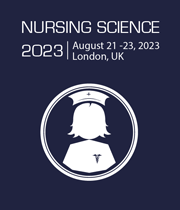Title : Aggression against health care professionals, a critical review
Abstract:
Introduction: Aggression to health care professionals (HCP) is a common occurrence both in psychiatric or non-psychiatric inpatient and outpatient settings. The overall prevalence of patient perpetrated violence (workplace violence - type 2) ranges from 9.5% to 74.6%, depending on the studied population, with verbal abuse as the most commonly reported form.
The objectives of this review are twofold. First we intended to perform a retrospective analysis of the literature for the last 10 years for workplace violence and aggressive behavior against HCP, nurses in particular. Second, we identified evidence-based interventions to manage and prevent workplace violence or aggressive behavior against HCP.
Methods: 5487 studies were identified by searching online databases (Pubmed, Cochrane and Cinahl) using a wide variety of keyword combinations (aggression, workplace violence, health care professional, nurse, management and intervention).
After screening on the publication date (2011-2021), the methodology (systematic reviews, reviews, meta analysis and randomized controlled trials) and the language (English), 430 papers remained.
24 studies were eligible after screening the in- and exclusion criteria and 19 were finally included for this review after reading full text and verify the specific aim of this review. Nine of them were descriptive, 10 had an interventional focus.
This review only reports on patient related violence and focuses on verbal and physical aggression, patient and worker characteristics, risk factors and the consequences of being confronted with patient aggression.
Furthermore, this review deals with the management of aggression in 1) violence prevention programs, 2) education and training programs, 3) pre-and post-event interventions, 4) de-escalation techniques and 5) general competences, attitudes and skills for HCP.
Results: The main findings of this review are that HCP were at high risk for experiencing violence and that reported aggression is related to dynamic factors which makes it unpredictable and highly context-related. Moreover, to be confronted with violence leads to serious emotional consequences such as depressed feelings (28.1%), anxiety, fear or helplessness (17.4% - 50.3%), as well as reduced jobsatisfaction (69.2%) and lower work performance (30.1% – 31.1% ).
Overall, the evidence for the effectiveness of interventions to manage aggression in a pre-or post-event setting was weak. None of the studies reported interventions which are highly effective. Only a risk assessment can lead to a reduction of aggression events. The number of aggressive incidents (relative risk reduction -68%) and the number of patients engaged in aggression (relative risk reduction -50%) were significantly lower in the groups systematically screened by a risk assessment.
Conclusion: Further research on the development of (more) effective interventions against aggression is highly needed.
Audience Take Away Notes:
The audience will be informed about the most recent findings of patient related violence. Patient and worker characteristics will be discussed, risk factors and consequences defined. They will learn which factors are determinative and what may be possible effects on the mental status, jobsatisfaction and work performance of health care workers
Secondly, they will learn how to deal with the management of aggression. Interventions were clustered in five groups: 1) violence prevention programs, 2) education and training programs, 3) pre-and post-event interventions, 4) de-escalation techniques and 5) general competences, attitudes and skills for HCP) and the effectiveness will be discussed. We focus on evidence based interventions and tips and tricks will be reached to facilitate workplace implementation


